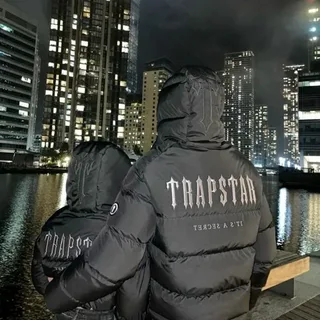Title: Trapstar London: The Streetwear Brand That Turned Mystery into Global Influence
In a fashion world that’s constantly chasing the next big trend, few brands manage to stay rooted in authenticity while growing their global influence. One brand that’s managed to do just that is Trapstar — the London-based streetwear label that evolved from underground hustle to an international symbol of style, rebellion, and cultural pride.
From cryptic slogans and limited-edition drops to high-profile collaborations and celebrity co-signs, Trapstar isn’t just a fashion brand — it’s a movement. And it all started with three friends, a few T-shirts, and an unwavering belief in the power of street culture.
From the Streets of West London
Trapstar was founded in the early 2000s by childhood friends Mike, Lee, and Will, who started printing T-shirts in their West London homes and selling them at house parties, out of car trunks, and on the streets. What set Trapstar apart from the beginning was its secretive branding — a bold refusal to follow conventional marketing rules.
The now-famous tagline, “It’s a Secret”, wasn’t just a catchy slogan — it was a lifestyle. Instead of flooding the market with ads, the founders let the brand grow organically through word-of-mouth, underground parties, and the energy of the UK’s emerging grime scene.
This mysterious and exclusive approach created instant hype. Wearing Trapstar wasn’t just about the clothes — it was a signal that you were part of something raw, real, and rising.
Music, Culture, and Authentic Influence
Trapstar’s connection to music was key to its ascent. The brand quickly became the go-to uniform for grime and UK rap royalty — including Giggs, Skepta, Wretch 32, and Stormzy — who wore Trapstar not because they were paid to, but because the brand represented them.
The aesthetic — edgy, aggressive, unapologetically urban — resonated with artists who came from similar environments. In turn, Trapstar became deeply embedded in the culture, worn in music videos, concerts, and award shows, further elevating its underground status.
That organic growth eventually caught the attention of global stars. When Rihanna, A$AP Rocky, and Jay-Z were spotted in Trapstar gear, it sparked worldwide interest. In 2013, Jay-Z’s Roc Nation officially invested in the brand — signaling its shift from UK secret to global streetwear heavyweight.
The Trapstar Aesthetic: More Than Fashion
Trapstar’s designs are bold, dark, and instantly recognizable. Inspired by street life, dystopian films, punk rebellion, and military styles, the brand uses gothic fonts, cryptic slogans, and industrial silhouettes to make a visual impact.
Some of their most iconic pieces include:
- The Hyperdrive Jacket — a futuristic puffer with oversized appeal and street-smart details.
- The Irongate T Logo Collection — including tees, hoodies, and outerwear that feature Trapstar’s trademark emblem.
- Decoded Tracksuits — tracksuits with subtle slogans and embroidery, worn by artists and athletes alike.
Trapstar doesn’t follow seasonal fashion calendars or industry norms. Instead, it creates drops — limited product releases that build anticipation, sell out quickly, and keep the community constantly engaged.
Collaborations and Expansion
Trapstar has smartly expanded through collaborations that make sense culturally and creatively. Notable collabs include:
- Trapstar x PUMA – Combining athletic wear with streetwear flair.
- Trapstar x Call of Duty – A fusion of gaming and fashion that resonated with fans of both.
- Trapstar x MCM – Blending luxury aesthetics with gritty, urban influence.
Each of these collaborations maintains Trapstar’s identity while opening doors to new audiences — a balance few brands manage successfully.
Cultural Significance
Trapstar isn’t just about looking good — it’s about what the brand represents. For many, especially young people in urban communities, Trapstar is a symbol of ambition, resistance, and independence. It reflects a mindset that says: you don’t need validation from the industry to succeed — just vision, hustle, and belief.
In a time where many fashion brands borrow from street culture without giving back, Trapstar remains rooted in the community that built it. Its founders never forgot where they came from, and that sense of authenticity is woven into every stitch of the brand’s identity.
Final Thoughts: Trapstar Is Here to Stay
In an industry that too often prizes fast trends over real culture, Trapstar is a rare example of a brand that stayed true to its roots and still managed to grow globally. From West London to worldwide, it has become much more than just a fashion label — it’s a cultural force.
Whether you wear it for the style, the story, or the symbolism, one thing is clear: Trapstar isn’t just a brand. It’s a movement.
Interested in featuring more streetwear stories or collaborations? Get in touch for guest posts, fashion editorials, or partnership inquiries.


